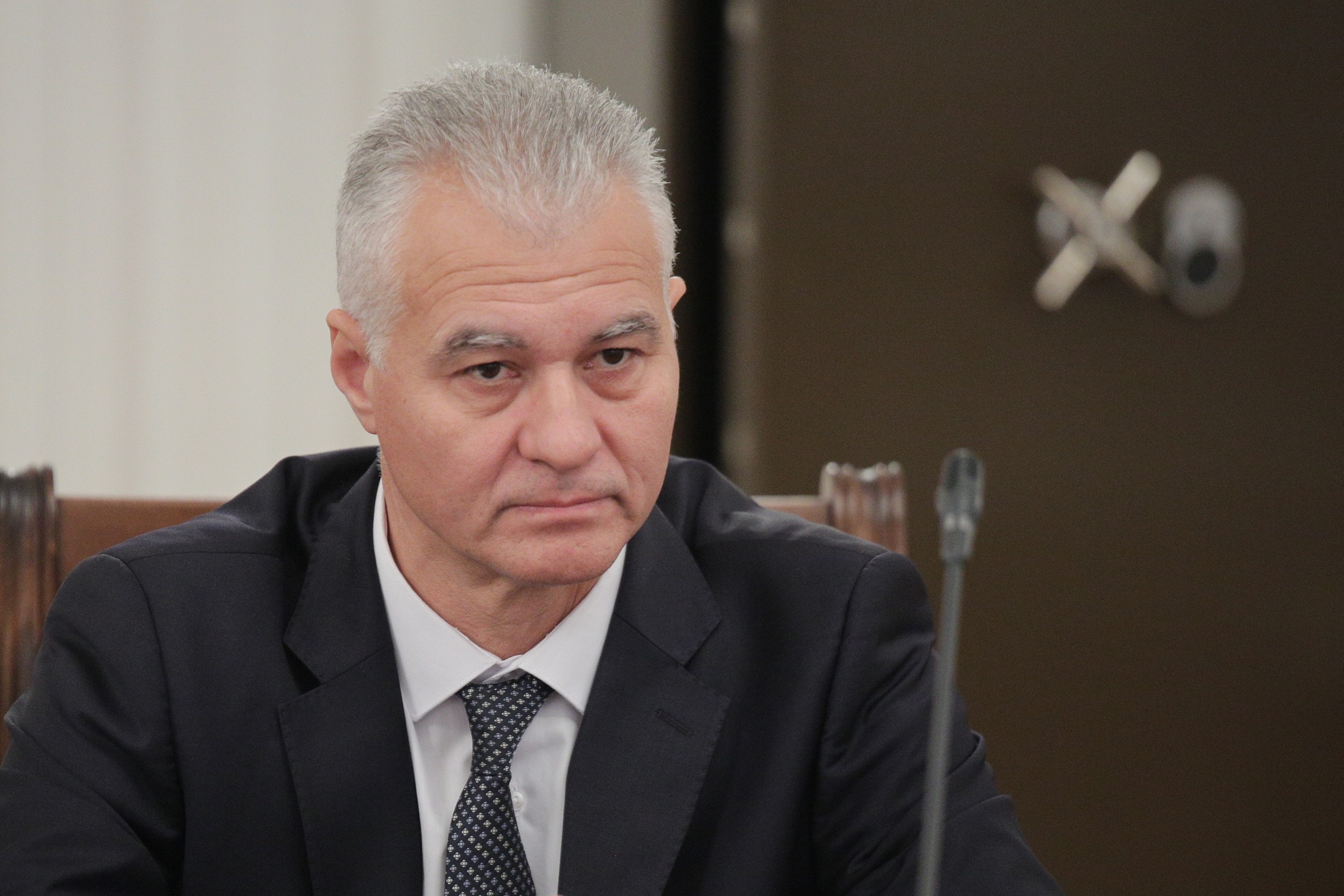National Security Agency Head Tonchev in BTA Interview on War in Ukraine, Migration, Other Security Risks
Jerusalem, 4 January, 2023 (TPS-IL) -- SOFIA, 04.01.2023 (BTA)
The head of the State Agency for National Security (SANS), Plamen Tonchev, gave his first interview since assuming the post on the occasion of the professional holiday of SANS officers, observed on January 4. He talked to BTA about relations with Russia, the war in Ukraine, migration and other security risks.
Relations with Russia
Tonchev said that Sofia’s official relations with Moscow deteriorated after Bulgaria was included in the list of unfriendly countries and the measures taken by Bulgaria to counter Russia’s influence in this country. Breaking the energy dependence on Russia and Bulgaria’s energy diversification became very important topics.
In 2022, Bulgaria has declared 84 staff of Russia’s official representations in Bulgaria personae non gratae, said the head of the State Agency for National Security (SANS), Plamen Tonchev, in his first interview since assuming the post.
According to a report by the Agency, three Russian Embassy staff were declared personae non grata in 2021.
War in Ukraine and Security risks
The war in Ukraine reflects Russia’s ambitions to interfere with the world order and confront the US and the West. The events from the past year brought on the agenda the issues of global food security and the need to tackle the EU’s energy dependence on Russia, the SANS chief said.
Tonchev said that currently there is no direct risk to the security of Bulgaria’s population. The ongoing military actions, however, could increase the migration flow towards and through this country. Economic consequences are also possible, such as price increases and supply chain disruptions, he explained.
Cybersecurity
Asked to comment on cyberattacks, Tonchev said they are an instrument that impacts the information systems first and then disrupts public relations, having a negative effect on the economy and the finance sector. This instrument is becoming ever more widely used and the reason for that is connected to the increased use of information technologies in social relations and in the industry, the possibility to order cyberattacks on the dark web and the use of information systems that do not meet modern cybersecurity standards.
According to him, the integration process between public relations and information technologies is becoming is gaining momentum. As a result of this, a negative impact on one is reflected strongly on the other. This calls for the introduction of stricter requirements when it comes to guaranteeing the two system’s reliability, Tonchev explained.
The fact that a number of countries are developing such instruments will continue to raise the requirements of cybersecurity policies, he argued.
Western Balkans
Asked to comment if there are any risks for Bulgaria stemming from the recent confrontations between Serbia and Kosovo, Tonchev said that there are areas in the Western Balkans where tensions run high, which is related to the unresolved issues between some countries in the region. There is the will to resolve them on international and regional levels, but this is a long-term process. There are no direct security risks for Bulgaria at this point. The unresolved issues, however, create obstacles to investments in the region and its Euro-Atlantic integration, he said.
Middle East, Africa and Migration
Commenting on the tensions in the Middle East and the increased refugee flow from there and in Africa, Tonchev said that the dynamic of migration processes in 2022 is cyclical in nature. The ongoing conflicts in the Middle East and North Africa, as well as the political changes in Afghanistan, are the main catalysts of these processes. Climate change, natural disasters and economic turmoil also contribute to the deterioration of the humanitarian situation in that region.
Pressure on Bulgaria, being an external EU border and a point of transit towards Western Europe, continues. A sharp increase in the migration pressure on Bulgaria was observed in recent months, which also resulted in an increase in the number of detained individuals. In view of this, SANS has taken additional measures to contain the migration crisis in coordination and cooperation with the security services and law enforcement authorities.
SANS and Its Professional Holiday
Approached to review the Agency’s work in the past year in view of its officers’ professional holiday, marked on January 4, Tonchev said that SANS is turning 15 this year. The requirements for the Agency and its officers are increasing each year. “We are carefully analyzing our successes and lack thereof,” he said. The Agency’s leadership strives to continue SANS’ development as a sustainable and reliable European agency, capable of addressing contemporary threats and justifying the trust vested in it.
“Our goal is for Bulgaria to be a prospering and strong State, inhabited by healthy, education, intelligent and proud people,” he said, adding that true success can only be achieved with the joint efforts of the whole public. National security is not the responsibility of just a select few, who are directly involved professionally, but of the whole society and all Bulgarians. It is achieved through joint efforts and trust. The tumultuous times should not make us afraid, as they give us strength that we never suspected we possess,” Tonchev said.


